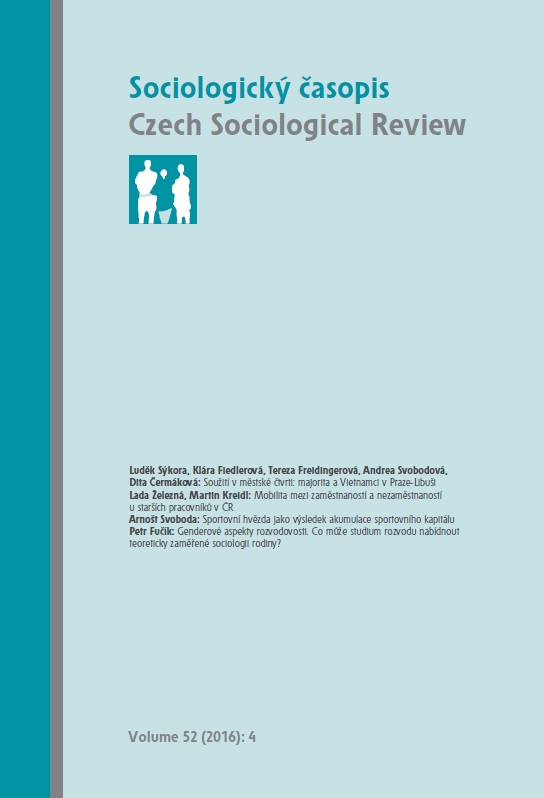
We kindly inform you that, as long as the subject affiliation of our 300.000+ articles is in progress, you might get unsufficient or no results on your third level or second level search. In this case, please broaden your search criteria.


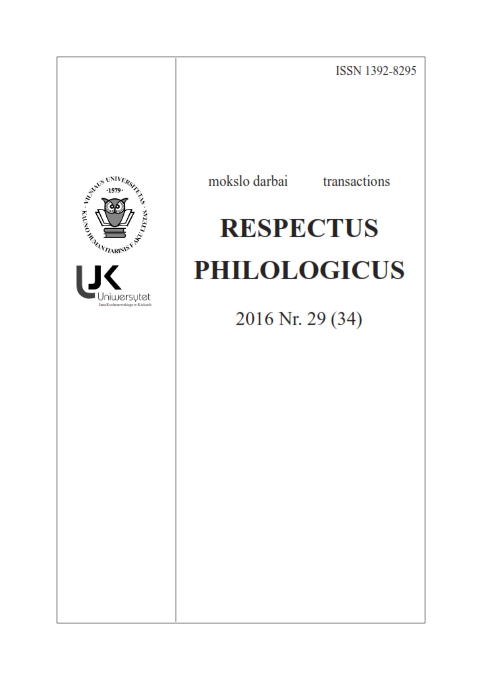
The article is taking issues of the social science methodology (with particular reference to sociology, with ethnomethodology at the head) in the context of the historical research methodology. Each of the social sciences developed its own methodology that is appropriate, according to the taken research problems. However, the dialogue between these special sciences turns out to be necessary, because people are making interpretations of sources that are staying in a specific place and time and various circumstances that are accompanying them. It is probably similar to the time when those sources arose. Thus, the analysis of the source material, irrespectively to its date of coming into existence, that it would be reliable must run at various levels, including the methodology and achievements of the so-called social sciences, amongst which, from a point of view of the historian, sociology will be playing a significant role. However, ethnomethodology, which is inspecting mechanisms “making reality shared”, offers to historians a wide range of research methods, which can expand the methodology of historical research.
More...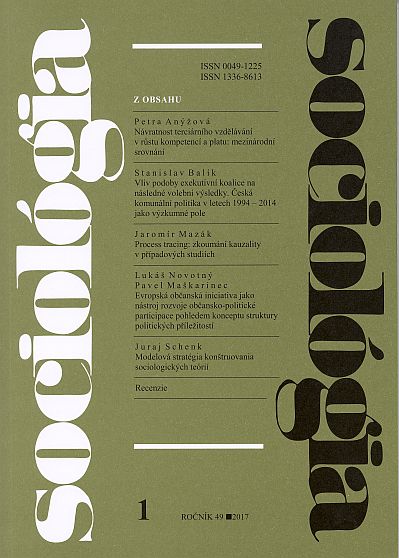
Sociological Theory Construction: Model-Based Strategy. In the article, three basic types of strategies for sociological theory construction as well as main features of model-based strategy are briefly introduced. The main attention is payed to the road passed by contemporary analytical sociology in the field of theory construction. Theoretical models (drawn from R. Boudon´s work) based upon social mechanism and providing explanation of social phenomena or processes, correspond to the first step on the road. In the next section, the transitional stage from theoretical models through classic formal models to agent-based models is mentioned. As a common example, the reproduction of social inequalities (Mat¬thew effect and cumulative (dis)advantages) which constitutes the substantive background linking classic formal models to agent-based model was exploited. The final part is dealing with the construction of agent-based model of deference exchanges (Manzo & Baldassarri). Heuristic and methodological problems are emphasized.
More...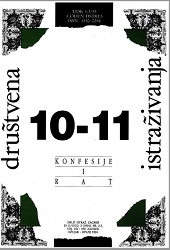
Taking into consideration the limitations of contemporary sociology, which, being engaged with the normative structure of society, essentially neglects the world and the individual, the author discusses starting points of a "reflexive sociology". That is the reason why the text analyses tne notion of everyday life through which we can come to an individual and his everyday life and in this way to the construction of the relationships in a society. Many schools have been created in the context of the phenomenological approach to the sociology of everyday life, and in this text two basic directions are being discussed - ethnomethodology and symbolic interactionism.
More...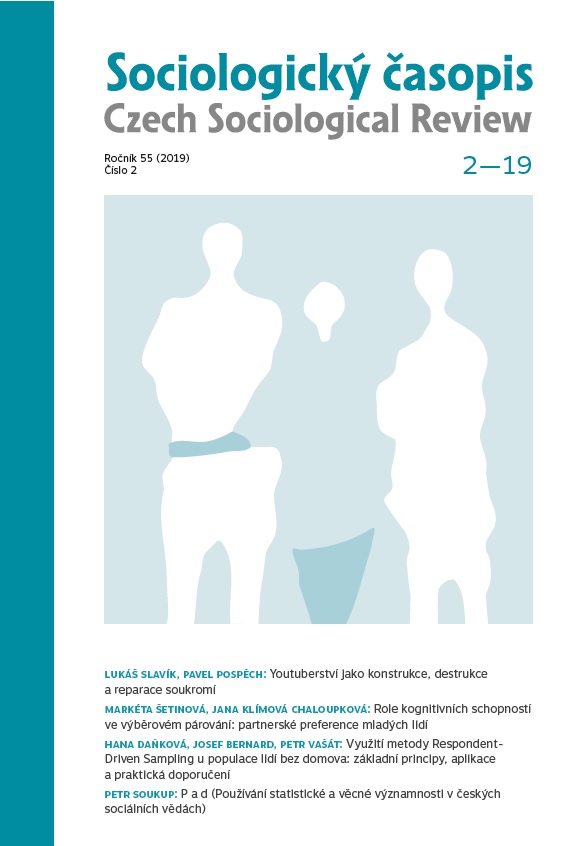
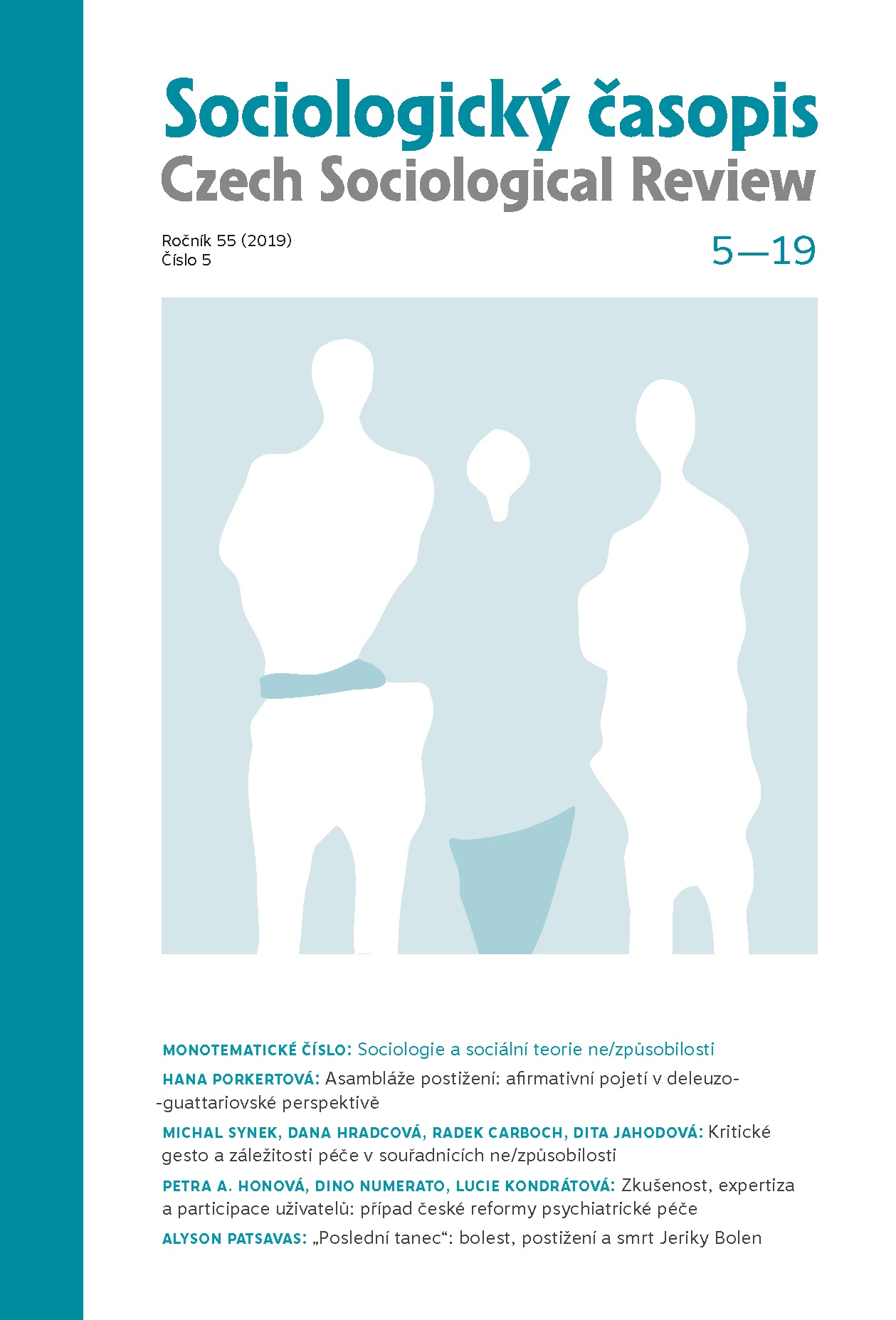
Critique is one of the social sciences’ most respectable tasks, especially when its aim is to emancipate people oppressed for their otherness. However, there is also a critique of critique as a disabling tool, replacing the obvious actors revealed as ‘fictitious’ with synthetic objects that the critic herself deems more ‘factual’. This article understands the critical gesture as a pragmatic resource for re-organising the field of dis/abilities. In the first part of the article, we make three critical gestures together with José, a person identified as mentally ill. A paranoid vision of a secret conspiracy, a naturalising concept of disease, and the critique of stigma all seek to radically redraw the dis/ability coordinates, but their emancipatory potential is thwarted by the complex interconnectedness of their objects. José’s recovery thus ultimately hinges on a delicate balancing act combining critique and composing. In this sense, his effort resembles the careful treading of lay and professional critics in the last part of our text, in which we try to solve problems of living with dementia together with the Hanuš family. While the critical gesture has an essential role to play here as well, close ethnographic encounters are rather about jointly articulating the critical matters of care, wherein the problematic agencies of both obvious and not-so-obvious actors are acknowledged.
More...
This paper focuses on users’ involvement in the reform of mental-health care in the Czech Republic, which, like in other countries, is connected with the destigmatisation of mental illness and the deinstitutionalisation of care. As part of the reform process, users’ and caregivers’ representatives were invited by the key stakeholders to participate in working groups, expert committees, and government bodies that associate users’ and representatives of parents. At the same time, users and caregivers mobilised from below and participated in a number of bottom-up initiatives. Against this backdrop, this study set out to identify the main positions of patients and caregivers in the Czech process of reforming mental-health care. Moreover, the role of the different forms of knowledge that inspire civic engagement are examined. The study is based on an analysis of semi-structured interviews, primary and secondary sources, and field observations. First, the following four positions taken by users as part of their involvement in the reform of mental-health care are identified: guardians, negotiators, awakeners, and fighters. Second, this study discusses the complexity of relations between users’ participation and knowledge, showing that the key source of users’ involvement is personal experience, which is difficult to separate from expert knowledge. The paper concludes with a discussion of the implications of the complexity of relations between expertise and experience for users’ involvement.
More...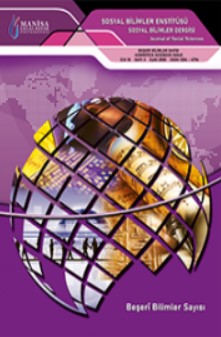
The aim of this research is to show that life is designed in the traditional, modern and postmodern period from what principles and the lifestyles are based on what values. The method we use to determine this has been document analysis and content analysis in particular. It has been determined that the basis of lifestyles in the traditional period is religious discourse, a single truth in the modern period and the plurality of truths in the postmodern period. It has been understood that the transition from a single understanding of truth to the pluralistic truths provides an opportunity for the development of different lifestyles, but on the other hand causes a danger of relativism if not observed. It is concluded that the basic principles that can be understood by everyone should be determined against the weakening effects caused by relativism.
More...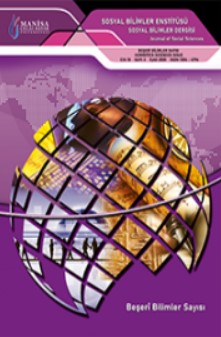
The aim of this study is to give information about critical theory which is one of the most effective theories of the 21st century. In this sense, what is critical theory and when and under what conditions it occurs is tackled. In the study, it is also mentioned that critical theory, which is affected by historical conditions, focuses critical thinking about which fields and then criticisms about positivism are included. In this sense, it is clear that ‘’giving a kind of enlightening and liberating formation ‘’ critical thinking targets ‘’to see beyond’’. It is possible to speak of a relationship between critical theory and the Frankfurt School. The Frankfurt School is a philosophical school with many different interests and ideas. Critical theory likewise considers that the problems of the era are not viewed from a single name but from different angles. In this way, it will be possible to reveal the real structure of society. Therefore, because of these approaches, critical theory and the Frankfurt School are often referred to together. Criticism of positivism for theory is one of its reasons. Indeed, according to critical theorists, positivism lacks the world of truth. While positivism highlights the cases, it eliminates the meaning. Therefore, the critical theory, whose mission is to show how to go, criticizes positivism with the critique of the disappearance of values by reducing them to facts in today's world. Therefore, in this study, the critiques of critical theory on positivism will be shown, and the implications of positivism in today's world will be discussed with reference to philosophers who advocate critical theory. In this way, critical theory and the necessity of a liberating system of thought will emerge.
More...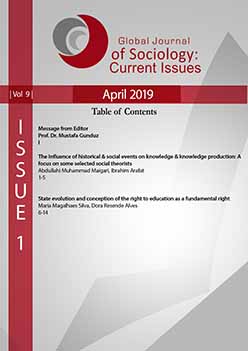
This article examines the relationship between knowledge produced by social theorists and the social events that occurred before and during their lifetime. The aim of the paper is to identify the social events and how they shaped the thoughts and knowledge produced by the selected theorists. This was approached through a review of secondary literature and narrative style to analyse the sourced materials. The paper examined three social theorists, philosophers or thinkers: Ibn Khaldun, Hegel and Comte. The study found that the knowledge produced by these theorists have traversed beyond disciplines classified as social sciences. It shows that the knowledge produced is intertwined with what happened before and during the time they lived which is reflected in their intellectual works. The paper submits that knowledge cannot be separated from the social reality of its producer. Therefore, the paper concludes that social theorists examined thought and wrote based on the social realities they encountered.
More...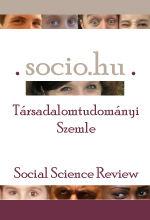
In issue 4 of 2019 the Social Science Review published an article entitled ‘Mobility and Social Integration’, which aimed to empirically examine the potential negative consequences of social mobility. In this paper, I would like to draw attention to the need for a theoretical clarification of that article’s conclusions regarding the dissociative thesis of Sorokin. The central question of the present paper is whether it is conceivable that Hajdu and his colleagues are right that ‚mobility’ has no negative consequences on psychological wellbeing or on social relationships, while Sorokin was not necessarily wrong either. The empirical results are not challenged here, but some key theoretical elements of the dissociative thesis are highlighted that need to be considered in order to ensure it is really a test of Sorokin’s thesis, and not of something else.
More...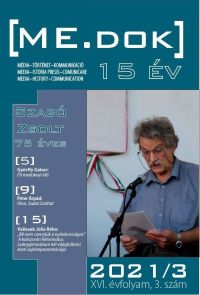
The aim of the article is to examine the characteristics of the third-level digital divideamong Hungarian elderly people (65+ years old) in Romania. The third level of digital divide refers to those digital practices that bring realbenefi ts to diff erent areas of everyday life through digital participation. Hungarian elderly people in Romania are clearly lagging behind interms of the third level digital divide. The explanation for this is partly to be found in the limits of their age and lifestyle characteristics andpartly in their socio-economic situation. Hungarian elderly people in Romania adhere to their usual lives and previously formed everydayhabits, in the repertoire of which the purposeful use of digital technology has not been integrated. In the same time, they do not have suffi cienttraditional (economic, cultural, social) resources that could be easily converted in digital capital. The results obtained in the case of Hungarianelderly people in Romania are in line with the theoretical fi ndings of digital inequalities research, according to which there is a correlationbetween the level of digital competence, the structure and usefulness of digital activities, and inequalities according to traditional socialstratifi cation dimensions (economic, cultural, social, politic).
More...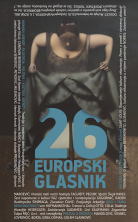
J. K. Rowling, autorica Harryja Pottera, u blogu objavljenom u srpnju 2020. u kojem je pisala o spolnim i rodnim pitanjima, kaže da je njezino kontroverzno stajalište vjerojatno uzrok što je do sada četiri ili pet puta bila otkazana. Suprotno mnogima koji su se našli na meti otkazivanja i kulture otkazivanja, Rowling se doimala smireno i prkosno, ne mareći za reakcije drugih na njezino stajalište kao ni za posljedice otkazivanja na njezin privatni i profesionalni život. To nije slučaj sa svim otkazanim pojedincima. 6. srpnja 2020. jedan je stanovnik Floride odbio nositi masku u trgovini Cosco, pa je od drugih mušterija zamoljen neka je stavi. A on je zatim počeo vikati da je ugrožen, te je napao druge kupce. Billy Corben, lokalna slavna ličnost, objavio je u 22.48 na Twitteru video snimku tog incidenta. Sutradan, nakon manje od 24 sata, identitet tog čovjeka otkriven je na Twitteru, a njegov poslodavac, Osiguravajuće društvo Ted Todd i direktor tvrtke, Charley Todd, izjavili su da je Daniel Maples otpušten. Kao što se danas kaže, Maples je bio otkazan.
More...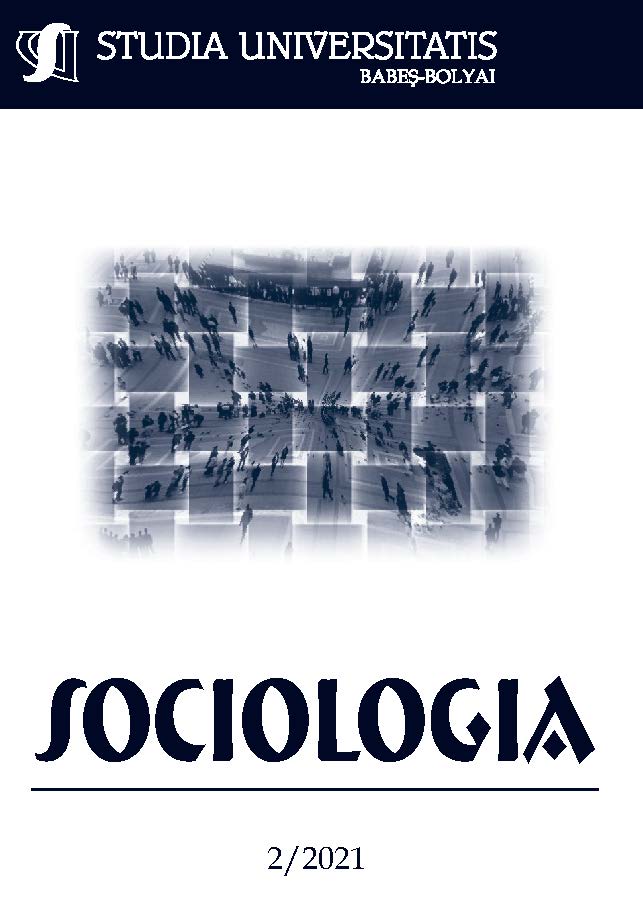
The primary main aim of this article is to explore the changes and adjustments brought about by the COVID-19 pandemic to the therapeutic process in the transition from face-to-face talking therapy to online therapy. Online therapy sessions, once a niche, have now become the norm in therapeutic work. This, more than ever before, raises the question of the efficacy of online therapy compared to face-to-face talking therapy. A related question is how the “classical” elements of in-person therapies (especially the psychodynamic, affective and relational-based), such as: the therapeutic alliance, the therapeutic containing space, the therapeutic relationship, etc. work in the on-line setting. This article draws on a primary qualitative exploratory research carried among Romanian clients who undergo a psychodynamic type of therapy and who transitioned from face-to-face to online therapy as a reaction to the new constraints engendered by the COVID-19 pandemic and after the measures were relaxed, the transition from on-line to in-person therapy. Our focus is on how they experience online therapy compared to face-to-face therapy in terms of intimacy, therapeutic frame and efficacy, as well as on the boundaries challenged, erased and created by the switch between the two types of therapy settings.
More...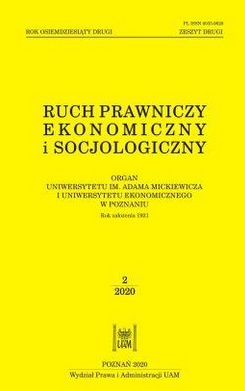
The article concentrates on social justice in the context of housing allocation and redistribution in Poland, especially the stock of social housing. Consideration is given to the changes currently taking place, which are leading to an increase in social justice, understood in accordance with John Rawls’ concept of distributive justice. The aim of the article is to answer the question of whether the concept of social justice (which is anchored in the Constitution of the Republic of Poland) has an impact on the implemented housing policy. If so, how is horizontal and vertical equity realised in the face of changes and reforms in housing programmes? The analysis of the concept of social justice in housing policy covers the period from 2006, when the programme supporting the purchase of the first flat ‘Rodzina na swoim’ was established, to 2019 and the programme ‘Mieszkanie Plus.’
More...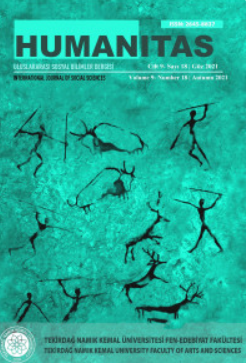
Here I examine various relationships between sociological theory and Spinoza and try to show that at the center of Spinoza’s philosophy lies a sociological imagination. The sociological imagination of the Ethics is manifested in the idea that the solution of individual/psychological trouble can be achieved in the social field and through a collective effort. “Adequate ideas” or “common notions” that enable individuals to overcome sorrowful passions can be constructed within social relationships. According to the sociological imagination of the Ethics, social relations create “emergent properties” that cannot be reduced to their constituent parts, namely individuals; in this respect, Spinoza also provides a philosophical basis for the relational sociology. I suggest relations of friendship as a possible model for this kind of emergent relationships. Finally, through the works of Althusser and Bourdieu, I try to reveal that Spinoza also has a significant influence in the introduction of body to social thought.
More...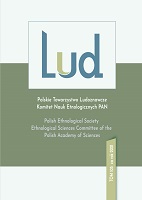
The article focuses on the opening of anthropology to post-anthropocentrism, and the more-than-human world. We are living in the Anthropocene, a new geological era in which human activities are affecting climate, ecosystems and the environment like never before. However, the dominant understanding of the global environmental history does not adequately account for its connections to social theory, even though these themes are inextricably linked to the sociality and materiality of the changing world of humans and non-humans. Within the framework of the world’s socio-cultural anthropology are being developed, and the representatives of the discipline are taking increasingly firm stances on climate change, developing practices that creatively can be called the ‘ecologisation of anthropology’ as a response to the notion that the world is overheated. A movement of conceptual transgression of the category ‘human’, which is the core of anthropocentric knowledge, can become an opportunity for anthropology not only to prognose the future of societies, but also to co-produce scientific knowledge anticipating and explaining its shapes.
More...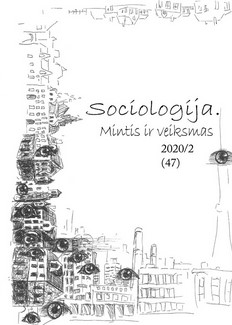
Šiam skyriui apie veikėjo-tinklo teorijos (VTT) pritaikymą aš apibendrinau kelis tikrai vykusius pokalbius. <...>. Veiksmas vyksta Londono ekonomikos mokyklos katedroje apniukusį vasario antradienį. Vėlyva popietė, pats laikas užsukti į „Beaverį“ vienam kitam bokalui alaus. Kažkas tyliai, bet atkakliai beldžia į profesoriaus kabineto duris. Kabineto duris praveria informacinių sistemų doktorantas.
More...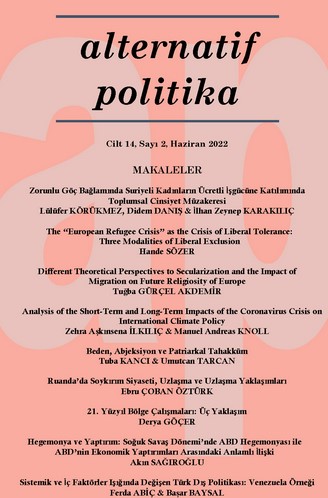
In Julia Kristeva’s psychoanalytic theory, abjection does not only reveal the interactions of the body with the conscious and unconscious; but also reveals the patriarchal domination of body imagery. Kristeva uses abjection as a phenomenological subject and examines its effects on experiences from a postfeminist perspective. According to them, the experiences that emerge under patriarchal domination are vulgar and marginalized movements that fade in material existence, just like the “wastes” of the body. This study aims to criticize the subordinate position of the body in the history of pre-modern and modern thought and deconstruct the patriarchal domination on the imagery of body by using Julia Kristeva's theory of abjection. Thus, in the first part, the journey of body from Antiquity to modern social theory is evaluated from a chronological perspective and discussed by focusing on thinkers such as Immanuel Kant and Emile Durkheim. In the second part, the relationship between body and psychosis in the doctrines of psychoanalysts Sigmund Freud, Alfred Adler and Jacques Lacan is explained. In the third part, Kristeva’s abjection theory and the patriarchal construction of abjection are analyzed. The study concludes that rescuing the body from patriarchal abjection is a requirement that maintains its validity in terms of feminist literature.
More...